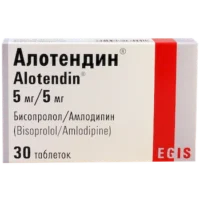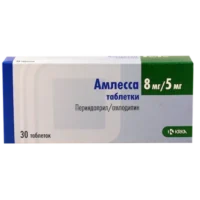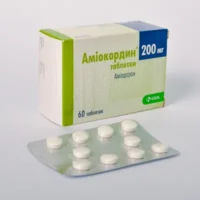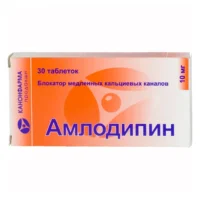Description
Izocet Ampoules 0.1% 10 ml. №10
Composition
Izocet ampoules contain 0.1% cetirizine hydrochloride as the active ingredient. Other ingredients include purified water, sodium acetate, and acetic acid.
Mechanism of Action
Cetirizine, a second-generation antihistamine, works by blocking the action of histamine in the body. Histamine is a substance that causes allergic symptoms, and by inhibiting its effects, cetirizine helps relieve symptoms of allergic rhinitis.
Pharmacological Properties
Cetirizine hydrochloride in Izocet ampoules exhibits antihistaminic properties, providing relief from symptoms of allergic rhinitis by antagonizing the H1 receptors.
Indications for Use
Izocet ampoules are indicated for the relief of symptoms associated with allergic rhinitis, such as sneezing, runny nose, and itching.
Contraindications
Do not use Izocet if you are allergic to cetirizine or any other components of the product. Consult your healthcare provider before use if you have severe kidney impairment.
Side Effects
Common side effects of Izocet may include drowsiness, dry mouth, and headache. If you experience any severe side effects, discontinue use and seek medical advice.
Usage Instructions
Administer Izocet as prescribed by your healthcare provider. The recommended dosage is one ampoule (10 ml) orally once daily. Do not exceed the prescribed dose.
Benefits Compared to Analogues
Izocet offers the advantage of a once-daily dosing regimen, providing effective relief from allergic rhinitis symptoms with a lower risk of sedation compared to some older antihistamines.
Suitable Patient Groups
Izocet is suitable for adults and children above a certain age as determined by a healthcare provider. Special caution should be exercised in elderly patients and those with renal impairment.
Storage and Shelf Life
Store Izocet in a cool, dry place away from direct sunlight. The product has a shelf life of [insert shelf life information here as per product specifications].
Packaging Description
Izocet is available in packs containing 10 ampoules, each containing 10 ml of the solution for oral administration.
Clinical Evidence and Proven Effectiveness
Clinical studies have shown that cetirizine, the active ingredient in Izocet, is effective in treating allergic rhinitis. A meta-analysis published in the Journal of Allergy and Clinical Immunology demonstrated significant efficacy of cetirizine in reducing allergy symptoms compared to a placebo.
Clinical Trials: A randomized controlled trial published in the Annals of Allergy, Asthma & Immunology concluded that cetirizine is well-tolerated and effective in improving symptoms of allergic rhinitis, establishing it as a valuable treatment option.





